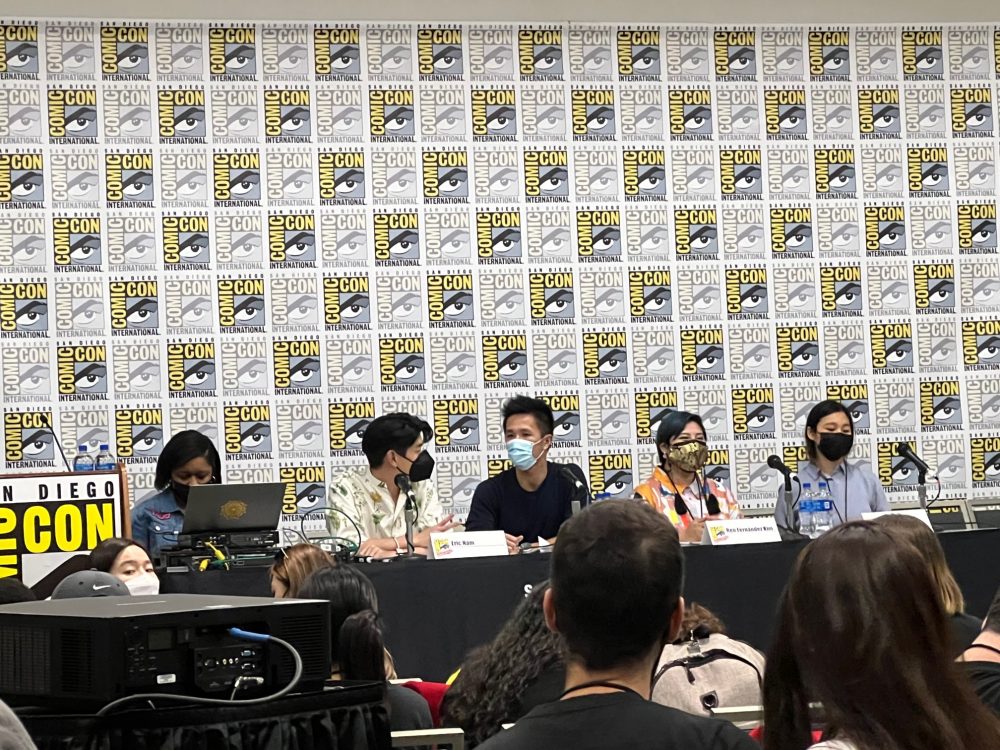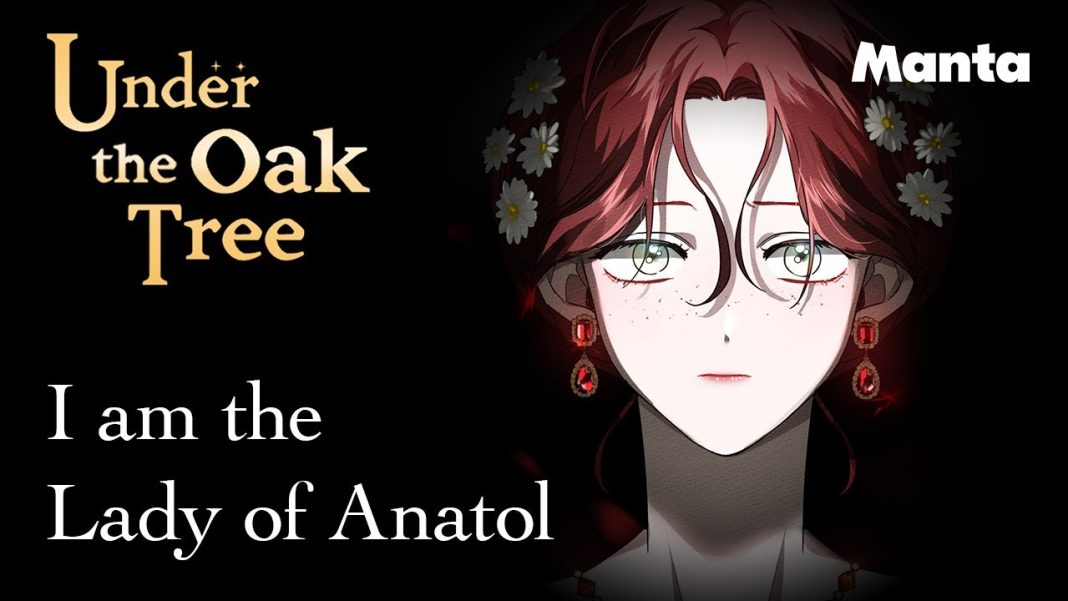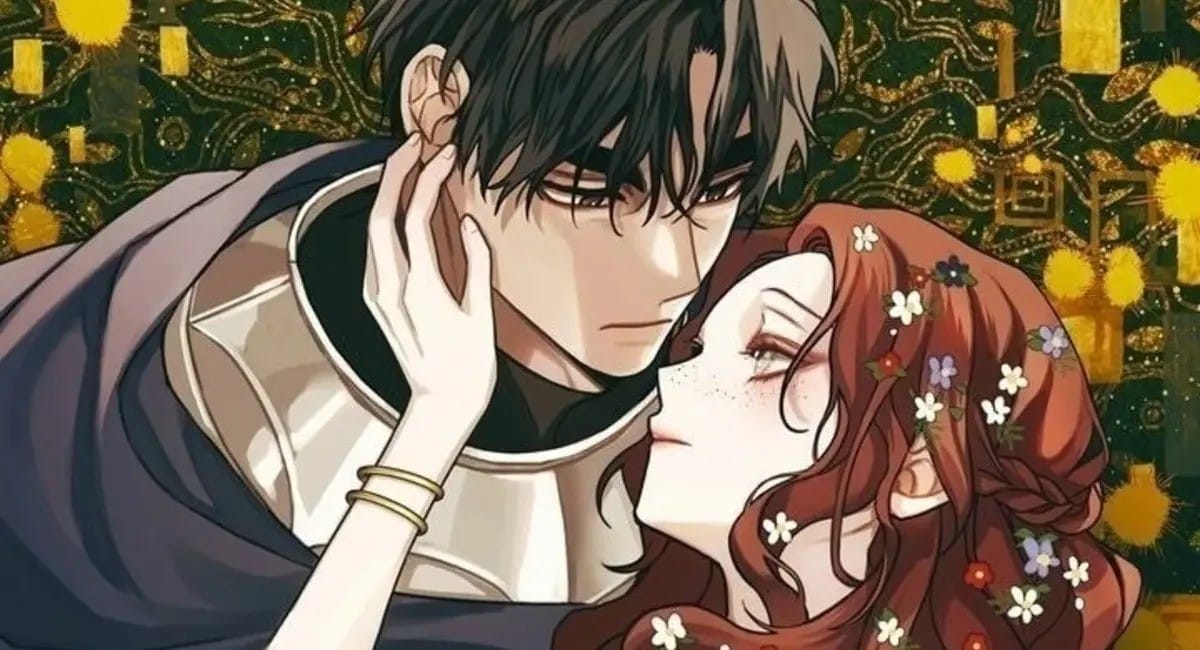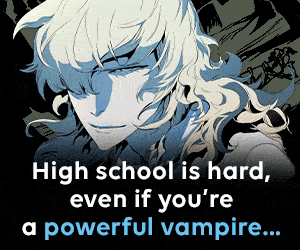If any doubt existed as to the legitimacy of Korean webcomics as a creative medium, all one had to do was survey the roomful of fans in Friday’s The Infinite Canvas: The Rise of Korean Webcomics panel and realize that Korean comics have progressed beyond slow burn to global phenomenon. Brandon Chen (Icarus Rising), Ren Fernández-Kim and No. 7 (English editor for Under the Oak Tree) joined moderator Eric Mann on the Manta-sponsored panel to wax poetically and passionately about the world of manhwa. The group discussed why the digital platform is such a unique forum to tell these types of stories and how fantasy romance comic Under the Oak Tree has impacted millions of readers.

In Under the Oak Tree, Maximilian (Maxi), the daughter of a duke, marries the knight Riftan at the bidding of her father. Riftan leaves for a three-year long military campaign the night after the wedding. When he returns, Maxi experience low self-esteem and questions her relationship with this man she knows nothing about. The comic explores themes of love and doubt and features gorgeous artwork, visceral dialogue, magnetic characters, and intense moments of passion.
Fernández-Kim believed much of the appeal lay in the comic’s art style and world-building. According to No. 7, readers may identify with Maxi’s self-doubt and esteem issues:
“To be in a relationship where you’re so showered with love, and you don’t understand why where that’s coming to begin is something a lot of people find relatable.”
Mann asked how the format of webcomics has influenced readership. According to Chen, because modern readers spend so much time on their phones, a webcomic designed to fit mobile devices provides a more immediate reach by taking advantage of the device’s scrolling capabilities. Fernández-Kim and No. 7 agreed, going further to explain how the single-panel focus facilitates efficient, quick reading.
“When I read manga or American comics, one thing that stops me from reading <American comics> is the information dump that I have absolutely no idea what to do,” said No. 7. “In a webcomic, you read left-to-right, up-and-down; it’s very intuitive in that sense.”
Fernández-Kim elaborated on discussion by explaining how Korean webcomics focus on human qualities, with details filling up the background. American comics, in contrast, are designed in reverse (details followed by human-centric focus). This contributes to the confusion and “information dump” alluded to by No. 7.
Korean webcomics, according to the panelists, have helped to bridge the cultural divide. For No. 7, Korean webcomics provided the connection to the Korean language and culture that she was missing. For Fernández-Kim, Korean culture has worked hard to prove its worth in the pantheon of creative arts. When K-pop infiltrated American pop music, that was the moment she knew that Korean culture had made it on American soil and that the hard work had paid off.
The finale of the discussion featured fan-based solicitations of love advice from the panelists. Topics included long-distance relationships (of which communication was agreed to be key by the panelists) and platonic-turned-romantic relationships (a type of relationship, says Fernández-Kim, that should have alarm bells ringing). While no names were given, the advice that the panelists provided was sage, sweet, and in the case of Fernández-Kim, blatantly honest.
The common consensus in the Korean webcomics panel was that the form, design and content of this digital artform has contributed to its popularity and that readership will continue to grow with highly relatable webcomics like Under the Oak Tree leading the way.
Miss any of The Beat’s earlier SDCC ’21 Special Edition Coverage? Find it all here!











